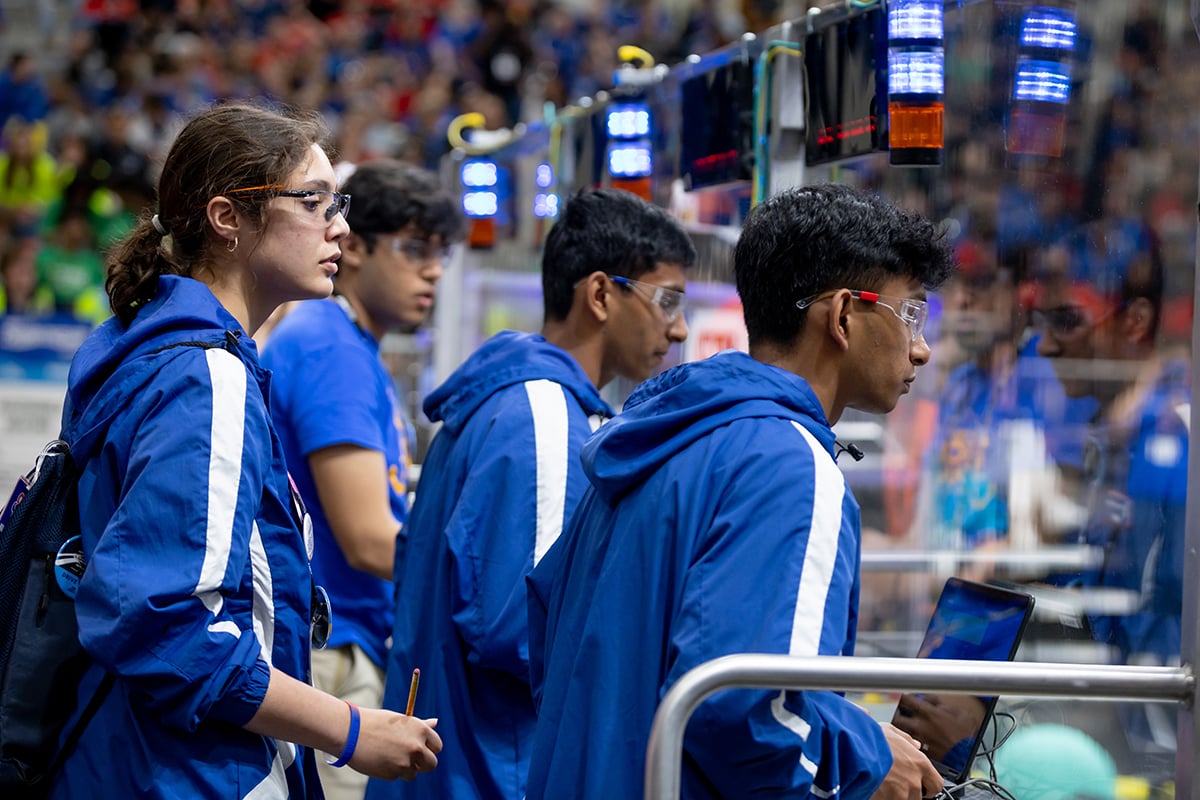FIRST® exists to prepare the young people of today for the world of tomorrow. The mission of FIRST is to provide life-changing robotics programs that give young people the skills, confidence, and resilience to build a better world. An important aspect of FIRST programs is mentorship and coaching. Adult mentorship is part of what makes FIRST so effective, and it’s been core to our programs from the very beginning. FIRST programs have impact because of the tens of thousands of caring adult volunteers (coaches, mentors, and event volunteers) that participate every season.
There are no plans to remove the ability for adults to serve as a Drive Coach. I think that some of the greatest mentoring can happen in the moments where tension is highest, including right before, during, and after a match. High school sports have adults actively coaching during gameplay, and FIRST® Robotics Competition is no different.
This summer, the FIRST staff worked with several exemplary Drive Coaches to write a Drive Coach Best Practices guide. I want to make clear that when I say “exemplary”, I’m not referring to their team’s win-loss record or how many Blue Banners they have. Instead, I’m referring to how that Drive Coach interacts with students on their team, students and adults on other teams, and event volunteers.
The methods, examples, and recommendations in this guide are applicable to adult and student Drive Coaches. Being a member of the Drive Team can put pressure on youth and adults. With the right guidance and support, this pressure can lead to tremendous growth and self-discovery. We’ve also updated the Improving Driving Performance guide and the Guide to Selecting Drive Team Members.
A huge thank you to the Drive Coaches that contributed to this guide, both for their help writing and reviewing the document and for the outstanding examples that they set for all of us.
